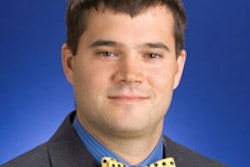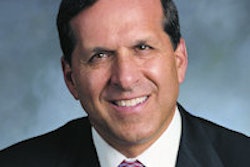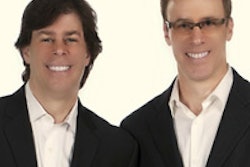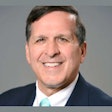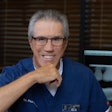
When someone devotes their career to dentistry, we say they are "practicing." How ironic, because succeeding in today's dental marketplace, quite frankly, has little to do with practicing anything. Rather, it has everything to do with performing!
Perhaps you've never considered your work in dentistry this way. But if you have desired outcomes you want to achieve consistently, then you perform. Many people count on you to be at the top of your game. The health of your patients and the livelihoods of your team depend on you bringing all of your talent, skill, and energy to your office every day. How to do that is the big question, especially when so many demands are placed on dental practice owners.
 Dave Striegel, PhD.
Dave Striegel, PhD.One of the most visible venues from which to learn what it means to perform under pressure, day in and day out, is sport. I'm not talking about weekend, recreational league softball. I mean professional sport where everyone sees who wins and who loses.
In the world of professional sport, where so much is riding on each play, pitch, and putt, confidence is king. It serves as the currency of success. Athletes and coaches covet it. Entire game plans are built to create and maintain it. Yet confidence is a "state," not a trait, which means that it can come and go from one activity to the next. An NBA basketball player may have total confidence in his ability to play defense and shut down the opponent, but may avoid at all costs having to shoot a free throw with the game on the line.
Similarly, you may be a cool customer performing a gnarly crown prep, yet be totally petrified when it comes to meeting with your team to have a heart-to-heart about their lack of teamwork.
So what can you learn from professional athletes that will help you build and maintain confidence to maximize your talent, skill, and energy under pressure? In a word -- preparation.
Preparation breeds confidence. Athletes develop detailed and specific preparation routines, so that by the time they have to perform, they are feeling as confident as possible. There are two basic components to preparation routines: mental and physical.
The mental part of the routine pertains to focus. What do you think about before performing? Do you think about what can go right or what can go wrong? (Hint: There's a time and place for both.)
Do you take time to visualize how you want a procedure to go, so when you're in the middle of it, you already have a mental picture to draw on? Or are you so rushed and stressed that you are lucky to know the patient's name before walking into the operatory?
The physical part of the routine has to do with making sure your body is ready to act. That means having the physical skills to complete the procedure or task in front of you. It also means being cognizant of nutrition, hydration, sleep, and rest intervals in addition to knowing whether you perform better in a heightened or relaxed physical state.
I often see doctors and their teams working through lunch, not taking time to eat even a small snack, and not drinking water, all of which influence their ability to consistently perform under pressure. They may be able to perform great for a short period. But they have no chance of achieving high-level performance if they neglect to give their bodies the resources needed to generate and sustain energy.
“Carve out a few minutes before each performance to think about how you want it to go.”
So give some thought to when you need to be at your best. Make sure you take care of your body, so you're as strong, physically, as you can be. This is your foundation. As Gen. George S. Patton famously once stated, "Fatigue makes cowards of us all."
Carve out a few minutes before each performance to think about how you want it to go. If you're thinking of a procedure, imagine it going flawlessly. Then imagine how you want to respond to some of the major ways your procedure can go sideways. Notice that I didn't recommend imagining the actual mistakes. You don't want to reinforce them. Instead, visualize how you want to respond with calm right after the mistakes are made.
Mentally rehearsing perfect performance is best when a skill is new and you're striving to make it a permanent part of your repertoire. As your skills advance, mentally rehearsing how you ideally want to respond following less than perfect performance will build an even greater level of confidence.
If you develop a strong, consistent preparation routine, you will find yourself relying on it when the pressure is on. It will give you a sense of control over your confidence just like the pros.
Dave Striegel, PhD, is a practice consultant who helps dentists maximize profitability by enhancing personal leadership and team performance. You can connect with him at [email protected] or 760-715-9427. You can visit his website here.
The comments and observations expressed herein do not necessarily reflect the opinions of DrBicuspid.com, nor should they be construed as an endorsement or admonishment of any particular idea, vendor, or organization.




